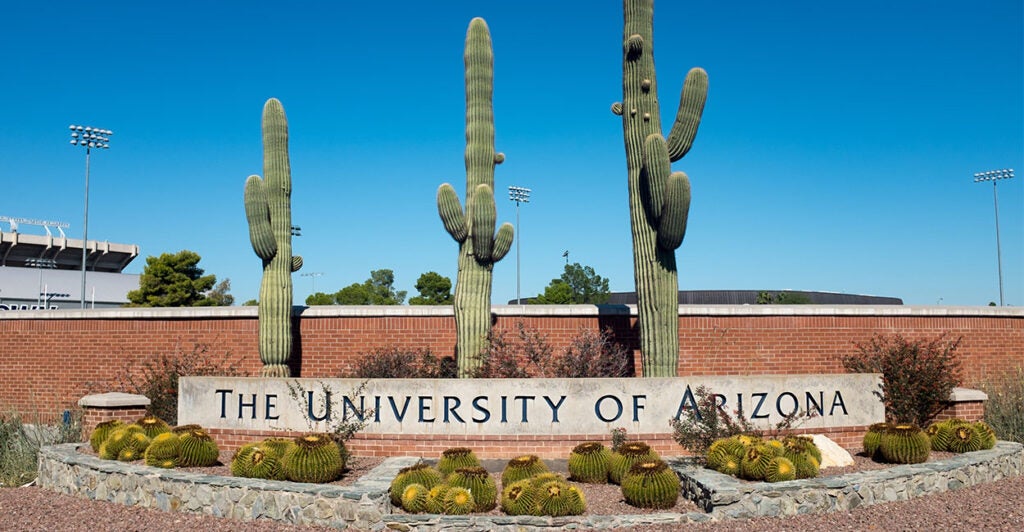In perhaps one of the strangest applications of diversity, equity, and inclusion in curriculums I’ve ever seen, the University of Arizona now incorporates a class in which students are told to “live like a bug” in order to understand “marginalized” groups.
According to a new report from Timothy Minella at the Goldwater Institute, a Phoenix-based think tank, students who enroll in an entomology course at the University of Arizona are directed to “reflect in personal writing assignments on the assumptions that inform popular attitudes towards insects, identifying ways that attitudes of othering interfere with self-identity and foster systems of privilege or oppression/marginalization.”
I’ve heard some wacky and nonsensical analogies and metaphors during the countless equity trainings we were forced to slog through in the Indianapolis Public Schools, but I never had the opportunity to imagine being a bug so I could understand how my “privilege” affected a nonbinary unicorn.
Can you imagine spending $140,000 for your kid to sit through that lecture?
Mind you, I’ve only taught units on insects to middle- and high-school students, though I have taken a graduate course on entomology. I searched through old course documents and didn’t find a single place where students would academically benefit by making tissue-paper wings and pretending to be blind, for example, as a way to spend some time with one of one’s “senses disabled.”
How that cures racism or some other bad word with “-ism” or “-phobia” at the end, I’m not sure, but I only have two education master’s degrees. Apparently, you have to have a Ph.D. in education to come up with things that stupid.
Other course syllabi at the University of Arizona aren’t as overtly cartoonish, but are just as nonsensical.
Minella’s report includes courses with extra credit for participating in “ally training” provided by the campus LGBTQ+ center, curriculum that promotes the debunked claim that U.S. institutions are “deeply embedded” with racism, the dubious assertion that not every American citizen has equal access to the “American dream,” and social guidance for students accused of saying “problematic” things.
If someone accuses a student of saying something deemed problematic, the course syllabus for one anthropology course encourages students to “resist the temptation to become defensive. Instead, apologize, self-reflect, learn, and do better next time.”
Of course, nothing is said about verifying whether any statement is objectively problematic, but strict objectivity apparently isn’t something lauded at the University of Arizona. Professors openly present and praise one political perspective and set of policy prescriptions, while decrying all others, such as calling for black author-activist Ta-Nehisi Coates’ racial reparations and assigning students to “share your favorite quote from the article.”
As of 2022, the University of Arizona changed the core curriculum required for all students to include 32 credit hours, 21 of which must come from classes described as “Exploring Perspectives” and “Building Connections.”
You’ve likely already guessed which attributes the University of Arizona requires in order to be considered a class that fits under one of those, but in case you haven’t, “Diversity & Equity” is at the top of the list. By 2026, all students will be required to take at least two of these diversity and equity courses in order to graduate at all.
“When you require classes to view everything through this ‘diversity and equity’ lens like [University of Arizona] has,” Minella told The Daily Signal, “everything is going to be warped—even the science courses, as we see here.”
None of the programs at the University of Arizona include required courses on American history, government, citizenship, or the U.S. Constitution. That defies a 2019 requirement by the Arizona Board of Regents, the governing body for Arizona’s three public universities.
According to a 2021 policy revision, the Arizona Board of Regents mandates that all public universities require students to complete courses that include:
(I) how the history of the United States continues to shape the present; (II) the basic principles of American constitutional democracy and how they are applied under a republican form of government; (III) the United States Constitution and major American constitutional debates and developments; (IV) the essential founding documents and how they have shaped the nature and functions of American Institutions of self-governance; (V) landmark Supreme Court cases that have shaped law and society; (VI) the civic actions necessary for effective citizenship and civic participation in a self-governing society—for example civil dialog and civil disagreement; and (VII) basic economic knowledge to critically assess public policy options and to inform professional and personal decisions.
The University of Arizona did not respond to The Daily Signal’s request for comment on its “Diversity & Equity” courses or confirmation that their programs lacked the requirements by the Arizona Board of Regents.
